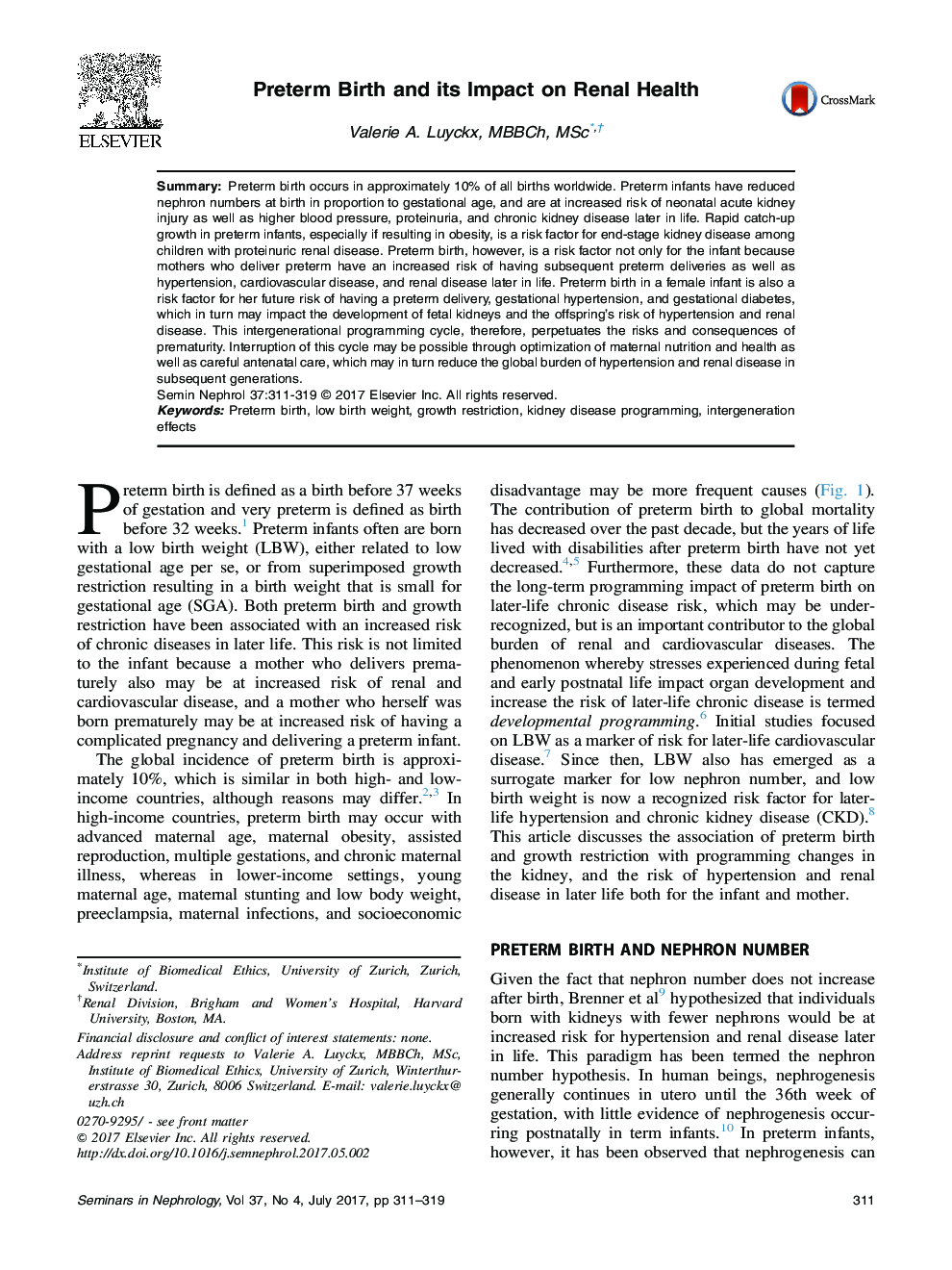| Article ID | Journal | Published Year | Pages | File Type |
|---|---|---|---|---|
| 5691612 | Seminars in Nephrology | 2017 | 9 Pages |
Abstract
Preterm birth occurs in approximately 10% of all births worldwide. Preterm infants have reduced nephron numbers at birth in proportion to gestational age, and are at increased risk of neonatal acute kidney injury as well as higher blood pressure, proteinuria, and chronic kidney disease later in life. Rapid catch-up growth in preterm infants, especially if resulting in obesity, is a risk factor for end-stage kidney disease among children with proteinuric renal disease. Preterm birth, however, is a risk factor not only for the infant because mothers who deliver preterm have an increased risk of having subsequent preterm deliveries as well as hypertension, cardiovascular disease, and renal disease later in life. Preterm birth in a female infant is also a risk factor for her future risk of having a preterm delivery, gestational hypertension, and gestational diabetes, which in turn may impact the development of fetal kidneys and the offspring's risk of hypertension and renal disease. This intergenerational programming cycle, therefore, perpetuates the risks and consequences of prematurity. Interruption of this cycle may be possible through optimization of maternal nutrition and health as well as careful antenatal care, which may in turn reduce the global burden of hypertension and renal disease in subsequent generations.
Related Topics
Health Sciences
Medicine and Dentistry
Nephrology
Authors
Valerie A. MBBCh, MSc,
